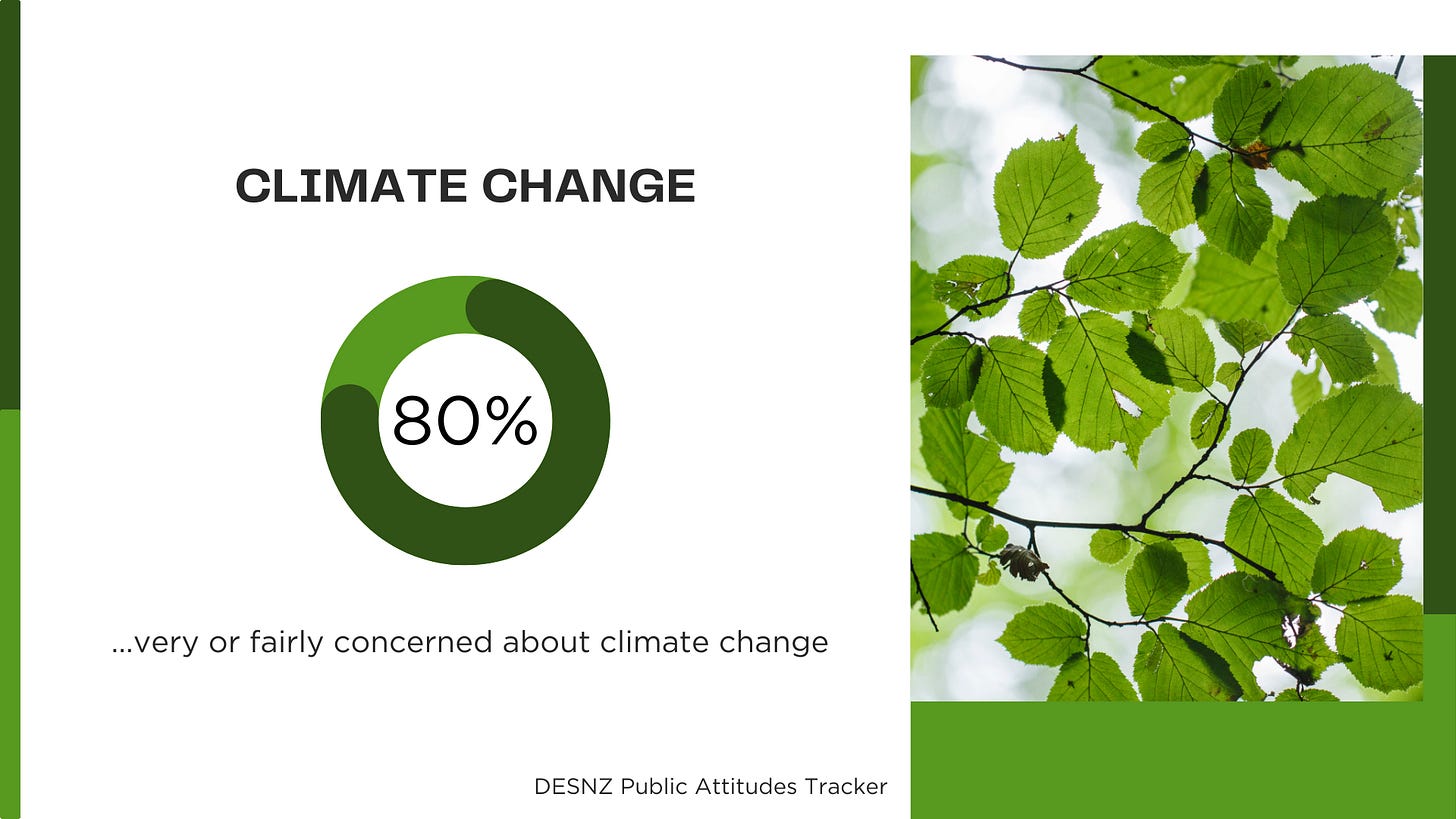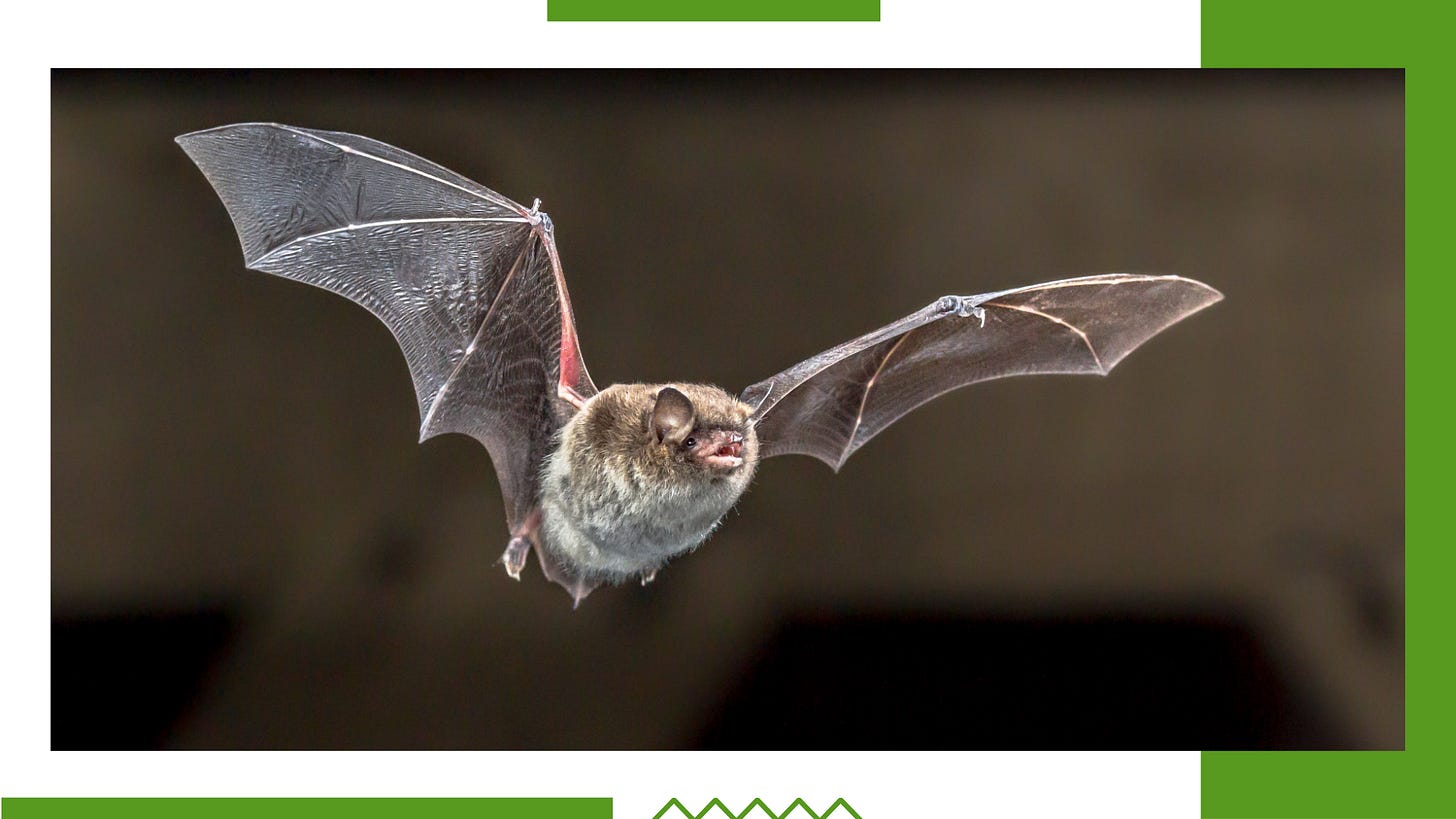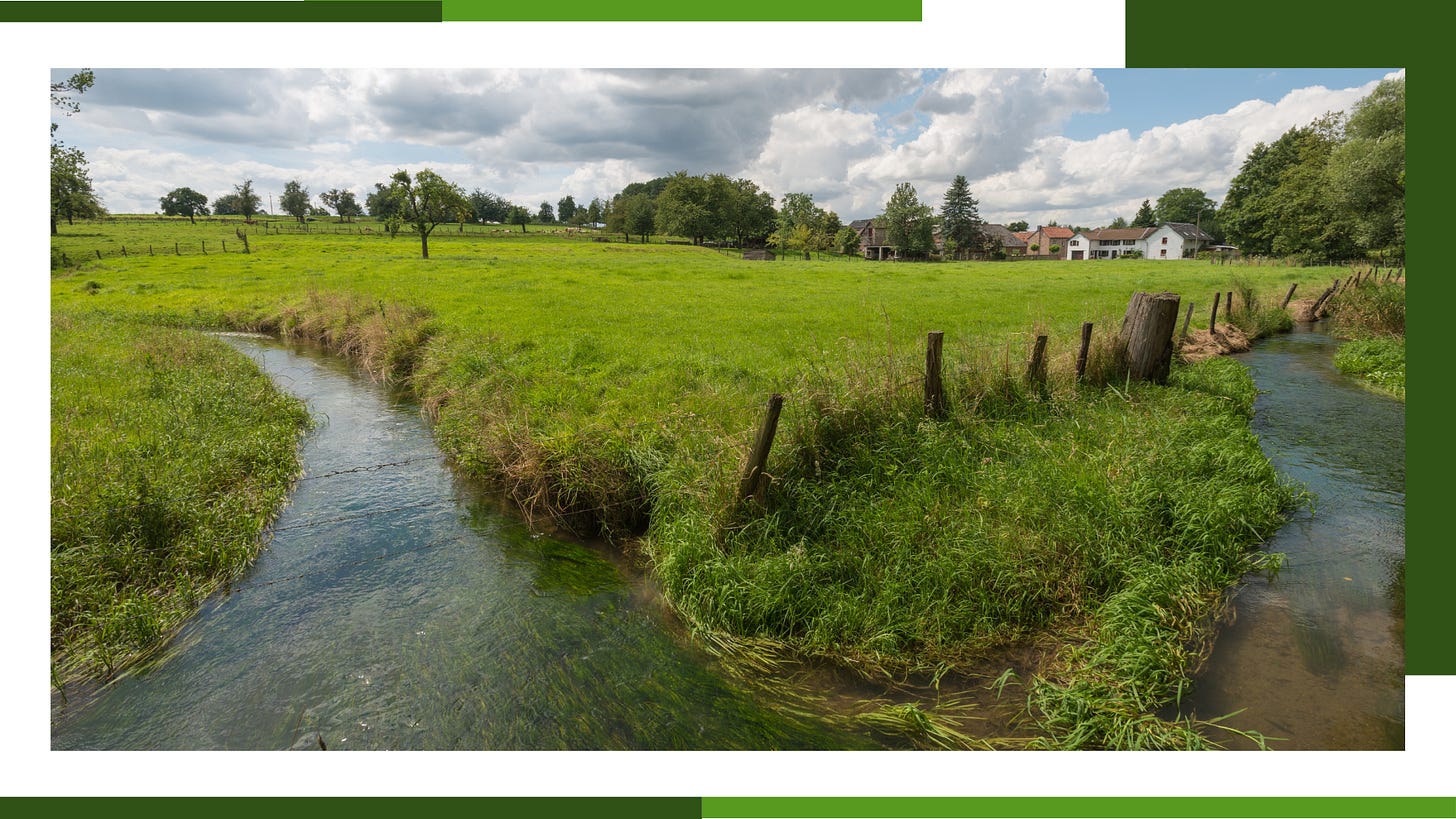Last night, I was delighted to be able to talk to a small but perfectly formed audience at an RSA Engage event about Fieldwork – what it is, why I’m doing it, and what the focus of the sitcom will be.
If you prefer to read rather than watch, below are the slides and my notes, which are not quite exactly what I said, but near enough!
(Btw, this post is apparently “too long for email”, so you’re probably going to want to click on the headline to see all of it!)
Fieldwork
Hi, I'm Suw Charman-Anderson, and I'm here to talk to you about Fieldwork, my upcoming eco-sitcom podcast.
But first, the good news.
The good news is that we've won the argument about the importance of climate change and biodiversity loss!
Indeed, 80 per cent of people in the UK are fairly concerned or very concerned about climate change.
And 93 per cent believe that biodiversity loss is a serious or very serious issue.
So we don't need outreach campaigns or climate stunts. That job's done.
What we need to do is move on to the next job, which is to give people answers and solutions. We need to find out more about which interventions work, and persuade more people to take action.
Unfortunately, the media hasn't really moved on from the waggy-finger, 'awareness raising' phase.
So a lot of coverage is just telling people that things are awful.
Depressing and doom-laden narratives are disempowering, leading people to believe that there's nothing that they can do...
... or that the problem is just too big to tackle in our lifetime.
But we need to discuss these issues in a way that shows people not just that change is possible, but how that change can happen and how they can get involved.
We do see that sort of messaging in some TV and radio programs.
Like Sandi Toksvig's recent Great British Woodland Restoration, Countryfile, and The Archers, which all tackle topics like species reintroduction and habitat restoration.
But I'd say that these programs appeal to fairly specific, and quite narrow, demographic. We need to spread our net wider.
Because popular culture can have an outsized impact on people's interests, and even their choices of career.
Black Panther, The X Files and Bones all encouraged more girls and young women to go into science and technology.
The question is, can we do the same thing for ecology?
Fieldwork is an eco-sitcom podcast that I and my colleagues hope will encourage people to engage with ecological and environmental issues.
It follows four ecologists from the University of Borkshire as they embark on a long-term study into the impact of rewilding on local birds, animals, insects … and people.
By making it a sitcom, we hope to attract a more varied audience. We need to reach beyond those who already know they are interested in environmental themes, and attract people who are here for the laughs, and who might end up learning some ecology by mistake.
Fieldwork is a joint project with the University of York and the University of Edinburgh, whose support has been invaluable.
They've helped to put me in touch with people from across the environmental sciences.
So I've been able to interview ecologists from around the world, who have worked with a variety of different species and in lots of different habitats.
That means I've been able to base the sitcom on real events and incidents, and to incorporate real science.
I've ended up focusing on three key species or groups.
Firstly, woodland bats.
Bats turn out to be fascinating and mysterious creatures. They're quite hard to monitor, obviously because they are most active at night when sensible people are in bed. And there's a lot we don't know about them. For example, we don't know where even some common bats hibernate.
They are seriously affected by the loss of older, 'veteran' trees. Older trees that have suffered damage such as losing branches or being struck by lightening have good roosting features. So research is ongoing into how we can recreate those features on younger trees.
Hawfinches are another amazing species.
They're the UK's biggest finch, almost the size of a blackbird, but their numbers have plummeted since the late 60s, and we're not entirely sure why.
Like bats, they are very elusive. They don't sing very much, and they're also really hard to spot up in the canopy, where they spend most of their time. So monitoring them is difficult, and catching them in order to ring them, even more so.
(I also have it on good authority that you really do NOT want to get bitten by a hawfinch. I mean, just look at the size of that beak.)
The third species I'm interested in are wood ants. They're not just an important prey species for insect eaters, they are also ecosystem engineers.
Their nests aerate the soil, enrich it with organic material and improve its fertility, and they play an important role in distributing seeds.
They may be small, but they are very mighty indeed.
Finally, I'm very interested in rewilding as a mechanism for habitat renewal and development.
It's incredibly important that we not just support a diversity of species, but that we create a diversity of habitats. Rewilding is one way to do this, as it allows land to evolve through several stages, from rough grass to scrubland to woodland.
We also need to pay attention to our ponds, streams and wetlands, which are literal breeding grounds for insects, and we really do need to increase our insect population.
I've spent the last couple of years doing my background research, talking to lots of lovely people, and I now have a really good draft for the pilot episode.
This spring, not only will I be developing the rest of the series, I'll be looking for funding to get the podcast recorded and released.
Which is where you come in!
I'd love for you to subscribe to my newsletter, which explores the science as well as the writing process.
And please share it, so that we can build our community.
Because it's not just about getting a podcast made, it's about bringing people together and creating a space for a renewed, constructive and hopeful conversation about what we need to do to improve biodiversity and tackle climate change.
And, finally, I'm looking for companies, or individuals, to sponsor the project so that we can make sure that Fieldwork gets recorded, and finds its way on to your favourite podcasting app!
Thank you very much for listening!



















